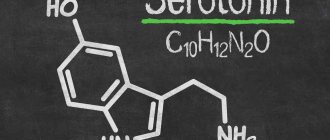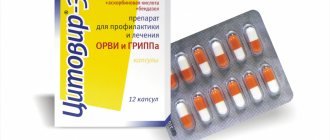Where can you find the strength to workout if you've had a hard day at work? How to fall asleep after intense exercise? How to restrain yourself and not overeat when you are under constant stress? Are you asking these questions too? Then read the answers in our article.
How to live if you are in no mood for literally anything? Doctors give advice to spend more time in the sun, get enough sleep and expose yourself to less stress. But we understand perfectly well that for a person with a busy schedule of work, training and family affairs, these tips will only cause sadness, since it is not always possible to follow them.
There is good news - we can establish the production of the “joy hormone”, which is responsible for a good mood, good sleep and improves memory. It's called serotonin. Serotonin is formed from tryptophan - it is an essential amino acid, it is not synthesized in the body and we only get it from food. That is, it’s just a matter of small things - we need a source of tryptophan.
Tryptophan for calm and confidence!
04.11.2016
Tryptophan is an amino acid from which vitamin B and serotonin are synthesized.
A decrease in tryptophan in the body entails a decrease in the secretion of serotonin in the brain, and this affects a person’s behavior and psychological mood.
Tryptophan became known thanks to the English biochemist Frederick Hopkins, who in 1901 isolated it from crude casein by hydrolysis. It is found in the greatest quantities in red and black caviar, nuts, meat, and cheese.
Functions of tryptophan in the body:
- helps fight anxiety, irritation, aggression and stress
. Scientists have confirmed that tryptophan reduces aggression in adult men who consider themselves to be hot-tempered.[1] After taking this amino acid, men became less conflicted and more tolerant. Another study found that tryptophan helped 10-year-old boys with antisocial behavior avoid temper tantrums and serious conflicts.[2] - helps fight insomnia
and improves sleep quality. Adequate sleep depends on serotonin and melatonin, which are synthesized from tryptophan. Scientists have found that taking 1,000 mg of tryptophan before bed reduces the time it takes to fall asleep, increases sleep duration, and combats insomnia.[3] - helps fight depression
. Increasing serotonin levels in the brain by taking tryptophan is an innovative way to treat depression.
Tryptophan not only improves mood, sleep, reduces anxiety and depressive moods, but can be useful for athletes. Taking this dietary supplement increases physical endurance, performance and strength.
.
In addition, it can increase the duration of training due to the subjective perception of fatigue. Scientists have confirmed the effectiveness of tryptophan by increasing exercise duration by 49%
.[4]
Tryptophan does not cause these effects at low doses, but in large doses it can cause nausea and dizziness.
Tryptophan deficiency leads to irritability, short temper and grumpiness, especially in older people. In addition, for this reason, a person suffers from insomnia and depression. Taking tryptophan in the form of a dietary supplement improves emotional mood, sleep quality, and also increases the duration and intensity of workouts.
View tryptophan in the store catalog.
[1] https://www.ncbi.nlm.nih.gov/pubmed/8856827
[2] https://www.ncbi.nlm.nih.gov/pubmed/17201574
[3] https://www.ncbi.nlm.nih.gov/pubmed/6764927
[4] https://www.ncbi.nlm.nih.gov/pubmed/1428380
Tryptophan
In order for the human body to synthesize vital proteins, it needs amino acids, the main ten of which include the amino acid tryptophan. Its role in the functioning of the nervous system cannot be underestimated, especially when it comes to those processes on which relaxation, rest and sleep depend. Foods containing tryptophan in large quantities are beneficial for many reasons. For example, tryptophan helps regulate appetite, improves sleep, and improves mood. Most tyrptophan is found in food sources such as red meat, tuna, shellfish, turkey, dairy products, legumes, soybeans and soy products, nuts, and seeds.
The amino acid tryptophan performs two important tasks in the body. The first includes the synthesis of niacin, the second - the synthesis of serotonin. Niacin, also known as vitamin B3, is produced in the liver due to the small amount of tryptophan obtained from food. Serotonin synthesis is also essential because this neurotransmitter, also called the “happy hormone,” helps coordinate appetite, sleep, and mood. Since tryptophan can stimulate the production of serotonin, this amino acid can be used to treat a wide range of diseases, which primarily include insomnia, depression and anxiety.
Symptoms of tryptophan deficiency
In general, if we touch on the main symptoms of tryptophan deficiency, we should explain some of the features of their manifestation. Since it is an essential amino acid, a lack of it in the diet can lead to the consequences that are most often observed with protein deficiency, namely weight loss and impaired growth in children. If this deficiency is combined with a lack of niacin, it can cause pellagra, which is characterized by dermatitis, diarrhea and dementia. Pellagra can also be fatal. And even though this disease occurs infrequently, a direct connection with a lack of tryptophan can be seen very clearly.
With reduced tryptophan in the human diet, serotonin levels drop. A low serotonin threshold can lead to depression, anxiety and irritability, impatience, impulsive behavior and inability to concentrate. This is also accompanied by memory impairment, insomnia and weight gain due to overeating mainly carbohydrate foods.
To summarize the main indicators of problems associated with tryptophan deficiency, the following list of symptoms can be identified: depression, poor sleep, anxiety, impulsivity, irritability, inability to concentrate, slow growth in children, weight gain or unexplained weight loss, overeating and carbohydrate cravings, insomnia .
In order to understand what factors may contribute to tryptophan deficiency, the following point should be clarified. Since vitamin B6 helps convert tryptophan into niacin and serotonin, this means that a lack of this vitamin in food can have the consequences of lowering serotonin levels and stopping the process of niacin formation. There are also a number of factors that weaken the conversion of tryptophan to serotonin, this could be a diet with excessive consumption of sugar and protein, it could be hypoglycemia and diabetes, it could also be bad habits like smoking and consuming large amounts of alcohol.
Symptoms of excess tryptophan
A high content of tryptophan in the diet, as is known, does not cause its excess in the body. Additionally, tryptophan is prescribed for therapeutic purposes, as a drug or dietary supplement, in doses greater than five grams per day and does not cause any side effects.
The influence of food preparation, storage and processing methods on tryptophan levels in foods There are no studies showing how the way food is prepared, stored or processed affects the level of tryptophan in foods.
Interaction of tryptophan with drugs
People taking antidepressants known as selective serotonin reuptake inhibitors (SSRIs) (including fluoxetine, paroxetine, and sertraline) should consult a doctor before taking any other supplements or medications that also increase the amount of serotonin in the body.
Tryptophan and other products
Vitamin B6, vitamin C, folic acid and magnesium are essential for tryptophan metabolism. In addition, tyrosine and phenylalanine are competitors of tryptophan.
Because of this, some medical professionals believe that consuming foods rich in tryptophan does not increase blood levels sufficiently to produce a therapeutic effect, and therefore tryptophan supplements should be taken to increase blood levels.
What conditions require special attention to tryptophan?
Tryptophan may play a role in the prevention and/or treatment of the following diseases:
- Anxiety
- Depression
- Headache
- Insomnia
- Nightmares
- Obesity
- Obsessive/compulsive disorder
- Pain
- Premenstrual syndrome
- Senile dementia
- Tourette's syndrome
Contraindications
Tryptophan dietary supplements do not have clear contraindications. AK is prescribed (with caution) to patients taking antidepressants. Undesirable effects can occur in the presence of liver dysfunction. Shortness of breath – with asthma and the use of appropriate medications.
As a rule, tryptophan dietary supplements are not prescribed to pregnant and nursing mothers. This is due to the penetration of AA through the placenta and into milk. The effect of the substance on the infant body has not yet been studied.
Relationship with sleep
Sleep disturbances are associated with psychological stress and irritability. When stressed, people tend to overindulge in high-carbohydrate and fatty foods. Their diet contains little fruit and vegetable products. The result: unbalanced nutrition and inevitable physiological disorders, one of which is insomnia.
A quality night's rest directly depends on the level of hormones (melatonin, serotonin). Thus, tryptophan is useful for normalizing sleep. For correction purposes, 15-20 g of amino acid per night is sufficient. To completely get rid of alarming symptoms, a long course is required (250 mg/day). Yes, tryptophan causes drowsiness. However, compared to sedatives, it does not depress mental activity.
Effect of trypophan on sleep and stress
In addition, tryptophan is necessary for the synthesis of serotonin and melatonin, so taking tryptophan as a supplement (or drugs containing a derivative substance, hydroxytryptophan), causes daytime sleepiness or improved night sleep as a result of increased melatonin production.
Tryptophan (more precisely, approximately 1% of the total amount received from food) is processed into hydroxytryptophan (5-htp), and then into serotonin, some of which is further converted into melatonin (the sleep hormone).
Serotonin is able to increase the pain threshold and relieve anxiety and restlessness, while melatonin reduces the intensity of many physiological processes and promotes the onset of deep and restful sleep. Thus, tryptophan (or 5htp) is very useful as a supplement for feelings of anxiety and fear, episodes of low mood, sleep disorders (including long-distance travel and flights), and withdrawal symptoms that occur when trying to quit smoking or stopping the use of substances that have psychotropic effect.
If you are forced to fly abroad on vacation or on a business trip, or are experiencing psychological discomfort, anxiety and irritability due to stress, and cannot get enough sleep, then it is quite possible that tryptophan supplements will help you. However, before taking them, you should consult a doctor, since excess tryptophan can be dangerous, and disturbing symptoms can be harbingers of serious health problems, the treatment of which should not be delayed.
What foods contain trypophan?
Tryptophan is one of the essential amino acids that our body receives only from food.
Chemically, it is an aromatic amino acid (contains an indole core - two rings: benzene and pyrrole), having 2 isomers, with the L-isomer being proteinogenic. Interestingly, only microorganisms, plants and fungi can synthesize tryptophan. All animals cannot produce it and must obtain it through food. But, since tryptophan is part of the proteins of all living organisms, it can be obtained not only from plant, but also from animal foods.
The following foods contain the most tryptophan: caviar (red and black), Dutch cheese, peanuts and other nuts, soybeans and other legumes (beans, peas), chicken, rabbit and turkey meat, squid, horse mackerel, herring, salmon and cod. , as well as chicken eggs, cottage cheese (and other dairy products) and chocolate.
Tryptophan, like other essential amino acids, is necessary for the body to create various types of proteins, including muscle proteins. True, connective tissue proteins (elastin, collagen) contain almost no tryptophan.
Sources of tryptophan
The most common foods containing tryptophan are presented in the table.
© Mara Zemgaliete — stock.adobe.com
| Product | AA content (mg/100 g) |
| Dutch cheese | 780 |
| Peanut | 285 |
| Caviar | 960 |
| Almond | 630 |
| Processed cheese | 500 |
| Sunflower halva | 360 |
| Turkey meat | 330 |
| Rabbit meat | 330 |
| Squid carcass | 320 |
| Pistachios | 300 |
| Chicken meat | 290 |
| Beans | 260 |
| Herring | 250 |
| Black chocolate | 200 |
It turns out that it is not chocolate that saves you from stress, but caviar, meat and cheeses.
Signs of tryptophan deficiency
So, tryptophan is an essential amino acid. Its lack in the menu can cause disorders similar to the consequences of a lack of protein (sharp weight loss, disruption of the protein process).
If AA deficiency is combined with niacin deficiency, pellagra may develop. A very dangerous disease characterized by diarrhea, dermatitis, early dementia and even death.
The other extreme is AA deficiency as a result of dieting. By not receiving enough nutrition, the body reduces the synthesis of serotonin. The person becomes irritable and anxious, often overeats, and gains weight. His memory deteriorates and insomnia occurs.
Effect of tryptophan
The amino acid allows us to:
- get quality sleep and feel cheerful;
- relax, relieve irritation;
- neutralize aggression;
- get out of depression;
- do not suffer from migraines and headaches;
- get rid of bad habits, etc.
Tryptophan contributes to maintaining excellent physical shape and a stable emotional background. It helps with lack of appetite and prevents overeating. Maintaining this amino acid in the body at the proper level allows you to go on diets without the risk of stress. (source in English - scientific journal Nutrients, 2016).
Tryptophan treats:
- bulimia and anorexia;
- mental disorders;
- intoxication of various etiologies;
- growth inhibition.
© VectorMine — stock.adobe.com






